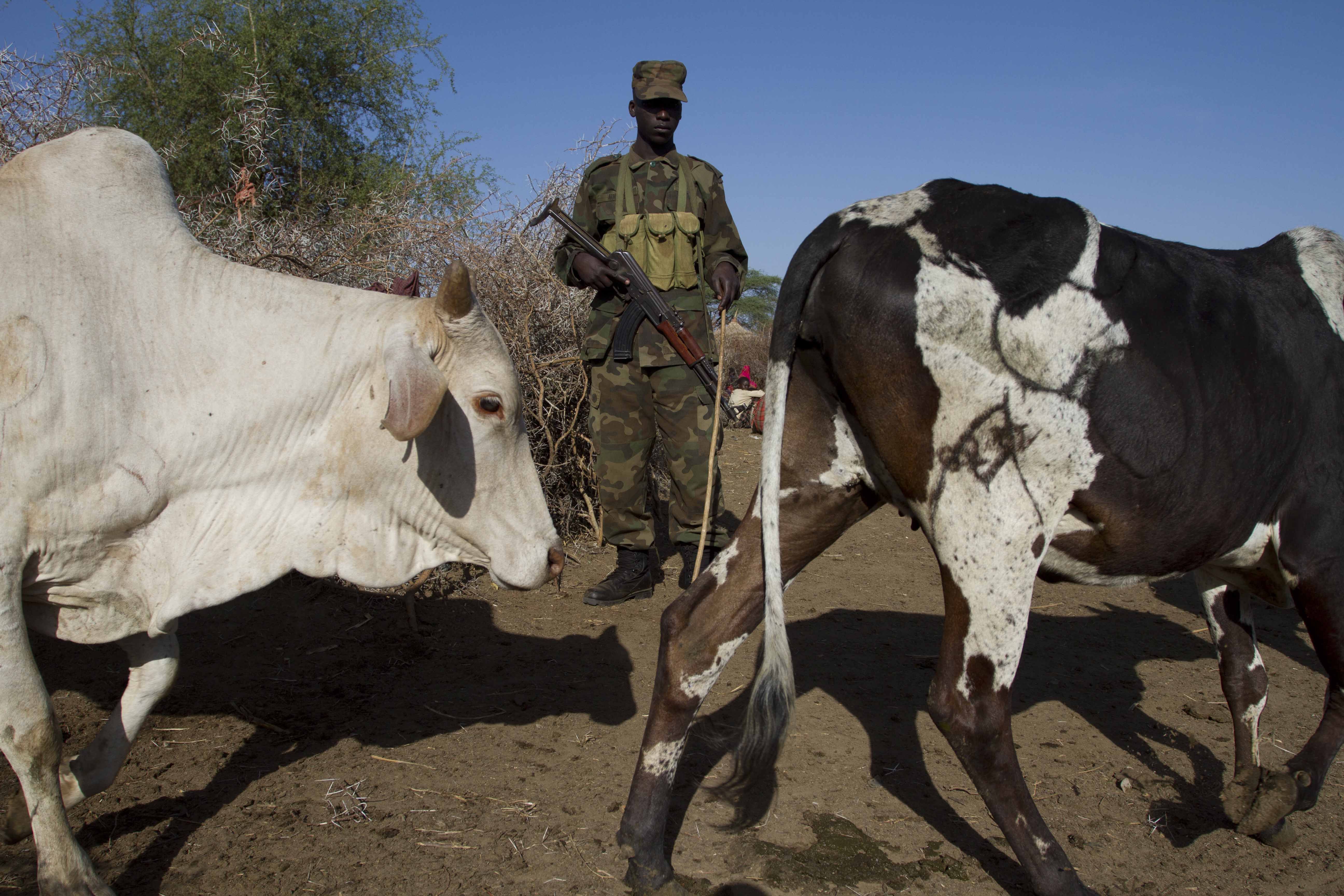After a decade-long disarmament campaign by the Ugandan military, "cordon and search" operations have become a fact of life for the people of Karamoja. While the army is claiming success, allegations of killings and torture persist.
"Tell your people," Major Geoffrey Lotaio of the Ugandan army said to the translator before quickly correcting himself. "Tell our people that our joint operation...is finished."
Sitting in front of him in the mid-morning sun, several dozen Karamojong men from the manyatta–or village–of Lodoi had seen it all before. Following a tip-off to military intelligence that stolen cows and possibly illegal guns were being kept in the village, soldiers had deployed without warning around the thorn-bush outer fence of Lodoi. Men, women and children from the six hundred families living inside had been ordered out, separated and made to sit and wait while for several hours police and soldiers searched houses for weapons, prodded bayonets into thatched roofs and baskets of grain, rummaged through possessions and checked cattle. In the end, only four stolen cows, one bow, two arrows and a spear were found. Two male suspects–one old, one lame–were loaded onto the back of a police van for further questioning.
"So, I want to know from them is there any complaint against the operation? Is there anything wrong that has been done to them?" Lotaio asked as I hovered nearby with my microphone. "So, the exercise has ended successfully?"
Silence.
"Yes or no?"
"Yes," the men murmured back compliantly.
No complaints this time, but that is not always the case. Over the past decade, thousands of soldiers from the Ugandan army have been waging a campaign to disarm the warrior nomads of Karamoja and put an end to the cycle of bloody cattle raids. At first voluntary, then forcibly, the army says the campaign has recovered almost 30,000 guns, often using cordon and search operations similar to the one I witnessed in Lodoi.
Now, as an army spokesman put it poetically, this was "the evening" of the disarmament operations. While previously such operations might have been met with hails of bullets, the warriors had been pacified, he said, with only a small number of guns left and police increasingly taking the place of the army.
It is impossible to accurately estimate the number of guns left in Karamoja. Long porous borders with Kenya to the east and Sudan to the north and constant movements of nomadic populations mean arms are likely still seeping in. In recent months, the scale and size of cattle raids have gone down, and roads, once too dangerous to travel, are now passable.
What has been documented, however, are the abuses of the army's operations in the region. In June, UN High Commissioner for Human Rights, Navi Pillay, condemned alleged killings and torture by the Ugandan army during cordon and search operations. Scores of civilians, including children and elderly, were reportedly gunned down by soldiers and military gunships.
The government set up an internal army inquiry to probe the killings–the results of which have never been made public–but Pillay demanded an independent investigation and the suspension of the commanders in charge. In general. She said the army's approach to disarmament had created "a climate of fear rather than cooperation."
As the soldiers and police searched Lodoi, Rafael Lopel, 32, who lives in the village and is a local councillor, explained to me in a lowered voice how the residents have learned to cope with the operations. The village has been searched so often, Lopel said, that it has become part of the normal life of the community. Now, in an attempt to pre-empt and prevent the searches, the community has started policing itself, he said.
"I do tell them don't steal and remain peaceful" Lopel said. "Once you do some kind of things or stealing and the army comes and then tortures you, then you will say that the army is bad," he said.
